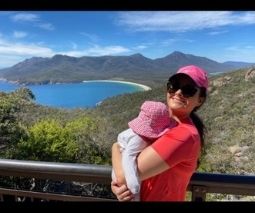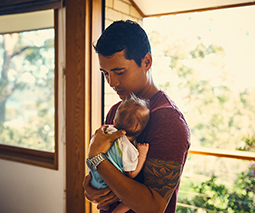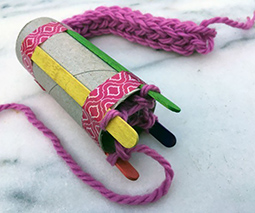Strategies for mums to be more mindful with money and save for the future

It can be challenging to keep on top of our finances, with household costs, bills and mortgage payments, not to mention family holidays and Christmas presents. The minute the money comes in, it’s out the window in a flash.
Canna Campbell, also known as Sugar Mumma, is a financial planner, director of SAS Financial, and author of Mindful Money – she shares everything you need to know about managing financial independence and spending money more mindfully.
Listen to Canna Campbell on Feed Play Love:
Taking control of finances
Having been a single mum, Canna is passionate about helping other parents, in particular, mothers who rarely prioritise their own needs. “We put our own financial well-being so far down the list and most often we don’t get to it, but the thing is, as we progress further into our lives and we evolve through motherhood and the wonderful passage that it is, we need to look after ourselves,” she says. “We need to stand on our own two feet financially and it’s often the smallest, most simple things that make the biggest impact.”
For Canna, taking positive steps to be financially strong has the same feeling that comes with opting for a healthy lunch. “When we honour our financial well-being, put a little bit extra into our super, pay that extra bit off our home loan that month to save thousands or tens of thousands of dollars in interest, or put extra money towards some emergency savings, it feels good, you feel in control, you feel responsible,” she says. “It’s an act of self-love and it really does help increase self-worth as women and as mothers.”
Money is not a dirty word
Canna was fortunate to grow up in a house where money was discussed constructively and with respect. “Most families don’t talk about money, and financial literacy from a basic level is not taught in schools and certainly not taught in university,” she says. “We are taught how to read profit-loss statements and balance sheets but we’re not taught how and why we need to pay off our credit card every month, why you must put some extra money into superannuation (and the impact of doing that), and how much better off you’ll be, financially, with compounding interest.”
Canna believes in bringing this conversation out into the open without it being intimidating or dull. “We start talking about solutions and ideas and strategies and inspiration and we create change,” she says. “And I’ve helped so many people from around the world with their financial situation and it’s so exciting.”
Where does my money go?
Sometimes it’s hard to see where all your money goes after payday; however, on her YouTube video, Canna discusses managing cash flow and budgeting and recommends having the following four account systems:
- The first account is your everyday account for your daily, weekly, fortnightly and monthly expenses.
- The second is your life and emergency money account, where you keep money for expenses such as Christmas presents, perhaps your wedding anniversary dinner or car rego.
- The third is a lifestyle account, perhaps a family holiday savings goal account, where you can put money, after prioritising the first two accounts.
- The fourth account is your financial goal account, where you put money away to later invest, maybe a deposit for an investment property, to buy some shares or put into superannuation.
Mindful spending
Canna believes that you work hard for your money so you should be able to spend. It’s just being mindful about the way you do it. “Prioritise the essentials, stick to a budget and save up for those special splurges and reward yourself once you’ve achieved certain goals,” she says. “And doing it, guilt-free, paid with cash, and not getting yourself into debt, you will enjoy it so much more; it’s delayed gratification, you value it more and you know that you’re worthy of it.”
Canna is a big fan of putting items on layby, paying them off gradually, or even simply putting something on hold. “Put it on hold for a day and come back. If you’re still thinking about it and still want it, no problem,” she says. “You’ve got to respect your well-being and not just financially but also holistically; as mothers, we also don’t buy ourselves nice things, and that’s not what I’m talking about. I want women to be able to do that and do it guilt-free.”
Be your own financial planner
While Canna is a financial planner with clients, she also believes it’s possible to take control of your own finances. And her book Mindful Money offers a lot of information to help get on track. “It’s very nurturing and obviously it’s got a female touch and it’s about having a goal,” she says. “The biggest thing, it’s called your mindful money number and that is the amount of money you need per year to survive and be financially independent – say it’s eighty thousand dollars a year, well, let’s go and build an investment portfolio that we can grow over time that pays you eighty thousand dollars a year, because, at that point, you become financially free.’’









